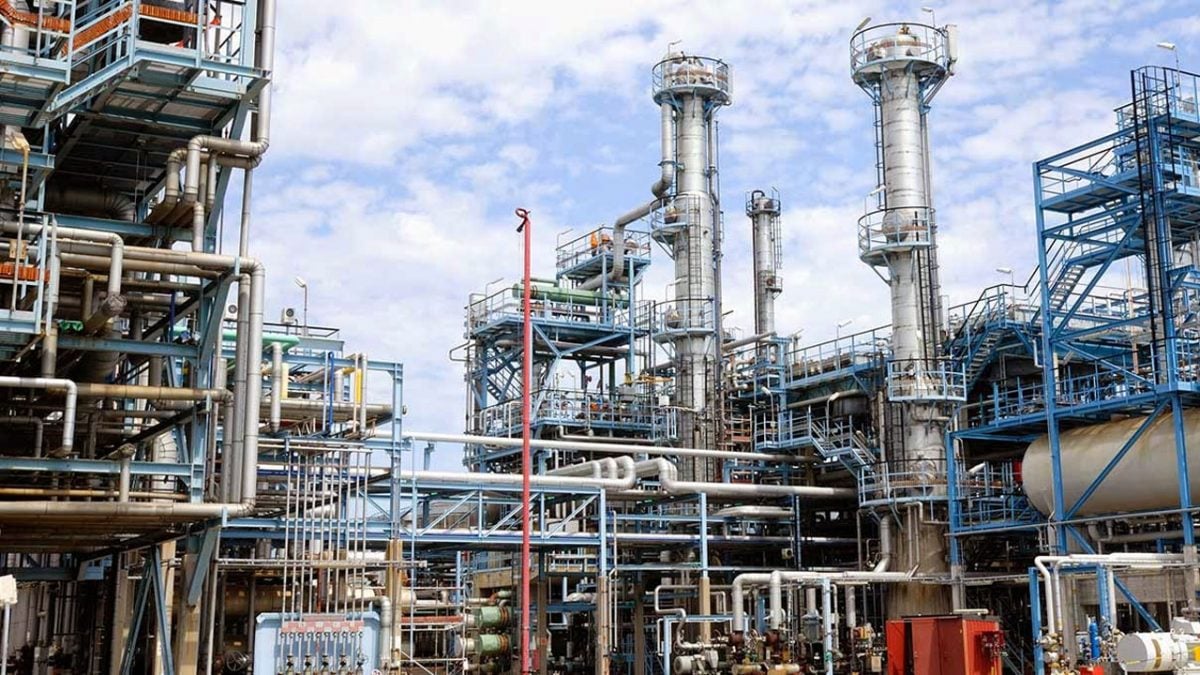The Nigerian Port Harcourt refinery is about to postpone the date of restarting the first phase for a period of months, due to the delay in the Italian company in charge of the rehabilitation project.
The first phase of the Nigerian oil refinery rehabilitation project was scheduled to open in April 2023, but the Italian company’s delays in completing the project may delay its opening for at least 4 months, according to Argus Media, a website that specializes in energy research and consulting. .
Nigeria’s Ministry of Oil awarded the Italian engineering company “Mayer Technimont” a contract to rehabilitate the Nigerian Port Harcourt refinery in April 2021, with a total value of $1.5 billion, according to the specialized energy platform.
Phase 1 delivery was delayed
The refining capacity of the Nigerian Port Harcourt refinery is approximately 210,000 barrels per day. The first phase of its rehabilitation project was scheduled to open within 24 months, with the second and third phases taking 32 and 44 months, respectively, from the date of the contract.
Meyer Technimont did not achieve the goal of the first phase of the project on the April 2022 deadline, nor was it able to remedy the delay until April 2023.
The Nigerian Ministry of Oil does not suggest opening the first phase of the project before September 2023, amid doubts about the late Italian company’s ability to complete its work before this date.
A committed Korean company
The Ministry of Oil is betting on the opening of the Nigerian “Wari” refinery, which has a refining capacity of approximately 125,000 barrels per day, ahead of schedule with the competent Korean company by November 2023.
The South Korean engineering company Daewoo specializes in rehabilitating the Warri refinery under a contract worth approximately $492 million, a contract that does not represent a third of what was acquired by the late Italian company, Meyer Technimont.
The Nigerian Port Harcourt refinery and the Warri refinery have suffered a record deterioration in their refining capacity since 2009, as well as the Nigerian National Oil Corporation “Kaduna” refinery, which has a refining capacity of approximately 110,000 barrels per day.
one-fifth of refining capacity
The three refineries operated at less than a fifth of their total refining capacity in the 10 years prior to 2019, according to the specialized energy platform.
The Warri and Kaduna refineries closed in 2019, while the Port Harcourt refinery closed in 2020, with refining capacity so reduced that operating costs were prohibitively high compared to the shutdown.
Nigeria was forced to boost imports of oil derivatives to compensate for the shortage in the local market, which needs the equivalent of 485,000 barrels per day.
The Ministry of Oil relied on the project to rehabilitate the Nigerian Port Harcourt refinery, along with other refineries, to reduce imports and alleviate foreign exchange pressures for the country, in light of the exorbitantly high prices of imported derivatives.
Over the past two years, Nigeria has suffered from an exacerbation of the phenomenon of oil theft in the rich Niger Delta region, which incurred losses of more than $2 billion in 2022 alone, as a result of the decline in production rates and disruption of crude export chains abroad.
Accusations of the Italian company

The delay of the Italian engineering company “Mayer Technimont” in handing over the refinery increases Nigeria’s suffering, which may force it to continue importing larger quantities of derivatives to meet the local demand for fuel.
The Italian company faces accusations of deliberate slowdown or choosing cheaper contractors than subcontractors, which explains the delay in delivering the first phase of the Nigerian Port Harcourt refinery project for more than 16 months behind schedule.
On the other hand, the company complains of financial difficulties as a result of the delay in obtaining the contract dues on the scheduled dates due to pressures faced by the Ministry of Finance in Nigeria.
The contract with “Mayer Technimont” provides for the payment of its dues gradually at regular periodic dates annually, but this did not happen due to the financial crisis that prompted the ministry to pay at irregular times, often during the second half of each year.
Exploitation of the refinery stores
The Nigerian National Oil Corporation uses the Port Harcourt refinery berth to export some types of fuel oil abroad, and the refinery stores and tanks store imported derivatives since its closure in 2020.
The specialized Vortexa platform monitored the shipment of 17,700 tons of fuel oil resulting from vacuum distillation “VGO” from the Port Harcourt refinery dock to Portugal in early May 2023.
The Nigerian National Oil Corporation has been the exclusive importer of gasoline in Nigeria since 2017, according to the specialist energy platform.
related topics..
Read also…

Leave a Reply